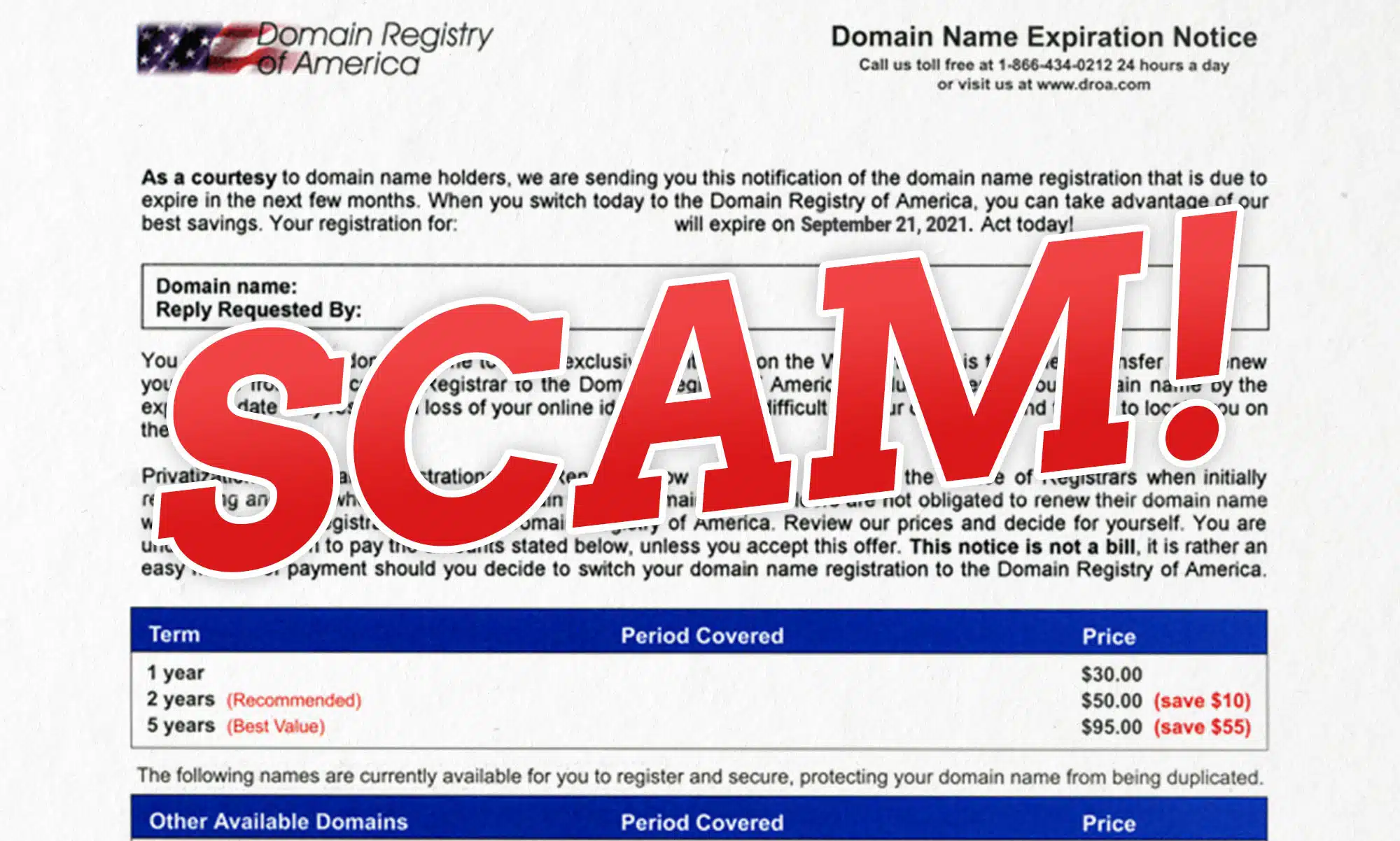What Is Domain Flipping?
Domain flipping is the simple practice of buying a domain name for as low as possible and selling it for as high as possible. The idea is to buy a domain, hold onto it for some time, and sell it at a profit.
People invest in all sorts of assets like real estate, stocks, commodities, and bonds. A domain is another “alternative asset” that you can successfully invest in if you have the patience and skills to pick the right domain names.
You may have heard stories about domains that were purchased 30 years ago for $100 and are now being sold today for millions. Sounds amazing, but is it really as low odds as winning the lottery? Or is it easier than that?
In this article, we go over some tried and true tips you need to help you start making money by buying and selling domains.
Go-To Tips For Buying and Selling Domain Names For Profit
When it comes to trying to make money with domains, it pays off to know what you’re doing. Read through some of our tips and suggestions to get you pointed in the right direction.
Set Your Budget
Define a budget that’s suitable for investing in domain names. While some people can spare only $100, others have no worries investing $10,000. The rule of thumb is to only invest an amount you can lose without headaches. Every investment carries risks, so avoid putting critical amounts into assets.
Look For Names That Have Value
Simply put, you want to find domains that would be a valuable asset to your buyer.
If you were buying a domain for your business or company or hobby, what would you look for? Is the domain you just bought something that you would actually use? Try to put yourself in the buyer’s position to make sure that any domain you buy is actually something that will have value.
It is also helpful to stick to an area that you’re familiar with. Remember to ask yourself, what kind of domains are other people in this industry buying? Would you buy this name if you were in that position? How much would this domain help them get found online or give them authority in their industry?
The top-level domain (TLD) also contributes significantly to a domain name’s value. “.COM” is the most common TLD, and domains ending with this suffix tend to be more valuable than others because of high demand. However, there are other valuable TLDs, such as .NET, .CO, .CC, and .ORG.
What are the best types of domain names to buy?
The types of domains that increase your chances of succeeding in domain name flipping include:
- Local: Domain names tied to specific locations, e.g., cities and towns, tend to have higher demand than others. You should target such domains because you’re more likely to find a willing buyer and make money flipping domains. For example, if you reside in Caldwell, you can target domain names like Caldwellcoffeeshop.com, Caldwellrestaurant.com, Caldwellbakery.co, etc.
- Short: Shorter domains command higher prices than longer domains because they are easier to remember. Customers find it easier to recall shorter domains, so businesses are willing to pay more for them.
- Keyword-Focused: Domains containing keywords are more likely to sell than those without. Look for domains containing keywords about different businesses and services, e.g., AffordablePlumbing.com, CheapPhoneRepairs.net, CarRepairs.com, etc.
Stay Focused
You’re aware that there are already millions of domains registered. But there are also endless combinations of available domains to register. If you’re looking for a key tip in regards to buying and selling domains for profit, you should start by narrowing your focus a little bit.
Like we mentioned above, you should start by thinking about a topic or industry you’re already familiar with. Are you in the healthcare industry? Do you love cars or animals? Your job of searching for domain names gets a lot easier if you already know about the topic, because you already have an understanding of the value.
Here’s something you should not do: Don’t just target buyers based on who you think might be wealthy. If you’re only targeting lawyers or doctors because you think they’ll have more money, you might be missing an opportunity in an area you know better. Also, if you don’t have knowledge of that industry, you might end up buying domains without knowing there are industry-specific rules that limit buyers.
Our advice is to stick with what you know. If you stay focused on those industries and areas, you’ll be much more successful and offer a lot more value.
Determine if the Domain is Available
A key step in the process is to make sure that the domains you want aren’t already taken. Here at Name Experts, we can help you with this entire process. If the names are taken, which is common, you can check the marketplaces to either buy from people who own them, or rebuy domain names that are expired.
Consider the Price
You’ve found the name you want. It’s available. But how do you know if you’re getting a fair price? You can use sites like namebio.com to compare the name you want with similar ones. It has interesting features like entering keywords and finding a list of names that are close to yours that includes what they sold for and when.
At Name Experts, we can also help you make sure you are getting the most bang for your buck. We have experts who can appraise the domain to find out what it is actually worth, so you know if you’re getting a good deal, and what it might be worth to potential buyers.
Buying Your Domain Name
You have successfully evaluated your domain name and determined a fair price. Now, it’s time to buy it. Your preferred domain can be purchased through a registrar, a marketplace, or a domain broker
When buying through a registrar the key is to choose one accredited by the Internet Corporation for Assigned Names and Numbers (ICANN), the nonprofit overseeing domain names. Follow this link for the full list of ICANN-accredited registrars.
If you want to buy from a marketplace there are many to choose from. These are our top 5 marketplaces and a quick Google search will yield many other options.
Finally, if you want to have someone else handle most of the effort in the buying process for you, hiring a domain broker will be your best option. Here’s what a domain broker does and how they can work for you.
Attract Attention To Your Domains
After buying a domain name, you need to attract attention to increase its value. A dormant domain doesn’t achieve much nor will it increase in value. Sure, you can find examples of dormant domains that made significant profits for their owners when sold, but that’s the exception and not the rule. Doing something with your domain increases your chances of selling it for significant gain.
What can you do with a domain? There are many answers. You can create a website with it to attract users. It doesn’t have to be a website you actively manage every day. You can fill it with content you only need to edit occasionally. For example, if you acquire “SchoolsInTexas.com,” you can write a detailed list of the best schools in Texas and add it as the homepage. Anyone who opens the domain might like the content and share it with others. As more people flock to the domain, its monetary value increases.
In the above example, you could even place advertisements on the content and make money from your domain. The ideal advertisements would be for the schools listed on the page. This example applies to many scenarios.
You can advertise your domain on search engines like Google and Bing or social media platforms like Facebook and X (Twitter) to draw attention. The good thing about online advertising is that you can do it even with a low budget. The idea is to gather eyeballs to your site to increase its value.
If you place content on your domain, ensure it’s optimized to rank high on search engines with search engine optimization (SEO). This optimization involves including relevant keywords, formatting the article neatly for humans and search engine crawlers, and writing helpful content for your audience. It also helps to get inbound links to your site from other similar, authoritative websites, i.e., backlinks.
With enough attention and audience, you can proceed to sell the domain.
Determine Your Domain’s Value
You have successfully attracted attention to your domain and are ready to sell. First, you must determine a fair value for the domain. You don’t want to underprice the domain and leave much money on the table or, inversely, overprice the domain and not find a willing buyer.
Here are critical questions to help you determine your domain’s value:
- Does the domain receive any traffic? The higher the traffic to a domain name, the more valuable it is. Showing proof of high traffic can fetch your domain a substantial price.
- Does it generate any income? If your domain name already generates income from advertising or any other method, it becomes easy for an intending buyer to value it. You can sell the domain for many multiples of its revenue.
- Does it have any search engine authority? Your domain’s search engine visibility largely contributes to its value. Domains with quality backlinks have more value than those without. Check your backlink profile to evaluate how much your domain name can fetch. If you feel they aren’t enough, you can build more backlinks before listing the domain for sale.
- Is the domain name brandable? You’re more likely to fetch a higher price for a domain that’s easily brandable. Such domain names tend to be short and easy to recall. Businesses pay top dollar for brandable domains because they draw more online traffic.
- Does it have a popular TLD? Domain names with popular TLDs like “.COM,” “.NET,” and “.ORG” are more valuable than those with less popular TLDs.
Pro-tip: If the answer to all the above questions is yes, you’re on the right path of flipping domain names for profit.
Selling Your Domain Name
You’ve determined a fair price. Now it’s time to sell it. Consider how you want to sell the domain and evaluate which will give you the optimal price. Your best options for domain name flipping include:
- Private Sale: Sellers can negotiate one-to-one deals with intending buyers. You’re free to approach an individual or business you think might be interested in your domain name and negotiate a price.
- Marketplace: You can list your domain name on a dedicated domain name marketplace. It’s easier to find buyers this way because the marketplace already has domain name investors looking for good deals. The marketplace will take a cut of your sales for their service.
- With a Broker: Another effective way is to hire a domain name broker like Name Experts to negotiate a deal for you. Domain brokers are experienced in evaluating the value of domain names and can fetch you the best possible price. The broker handles the negotiations, and you only need to authorize the domain transfer.
- Auction: Auctioning your domain name is another way to sell it. You’ll place the domain up for auction on a marketplace, and the intending buyer with the highest bid will get it. Domain auctions usually last several days, so there’s ample time to find a willing buyer and profit from domain name flipping.
After deciding how to sell your domain name, the next steps include:
Use An Escrow Service
It’s advisable to use a third-party escrow service when selling your domain name. The escrow service holds the money paid by the seller and releases it after confirming that you’ve transferred the domain. It prevents you from falling victim to fraud, e.g., a buyer refusing to pay after you’ve transferred your domain.
Transfer the Domain
Transfer the domain as agreed to the intending buyer. You’ll request an authorization code from your registrar and transfer the domain to the buyer’s registrar account. Note that most registrars require a domain to be at least 60 days old to be eligible for a transfer.
Building Your Domain Portfolio
You can become an expert investor specializing in domain names if you’re willing to learn about it and create long-term value. Domain names are like any other asset to invest in, but you must do it carefully. Follow these tips to build a good portfolio and make money flipping domains:
- Understand your strategy: Domain name investors either follow the “quick flip” or “buy and hold” strategy, and these phrases are pretty explanatory. Choose which strategy you want to follow, or use a mix of both.
- Diversify your portfolio: The portfolio’s value should not be tied up in a single or few domain names because of concentrated risk. Feel free to acquire more domain names to balance your risks.
- Never overpay for an asset: Don’t be the inexperienced investor who overvalues and pays excessively for an asset. Ensure you get third-party evaluations before paying for a domain. This will help you to maximize your profit when you sell the domain.
- Study and gain knowledge: The domain name investment scene is flexible and dynamic. New events occur every day that affect the value of domain names, so ensure you stay up to date with industry news to avoid getting left behind.
Risks of Flipping Domains
Domain name flipping doesn’t guarantee profits. It carries risks just like any other type of investment. The main risks include:
- Low Liquidity: Domain names don’t have as much demand as other assets like stocks, bonds, and commodities. You’ll likely need to wait a while after listing a domain before you find a willing buyer. It’s not something to invest in if you want short-term liquidity.
- Unexpected Valuations: Domain name valuations can swing high or low on a whim. You might buy a domain, wait a while, and list it for sale, and the offers will be significantly less than you paid for it. Domain name valuation is not as technically grounded as in other assets like stocks and bonds; the value depends significantly on a buyer’s intuition, so be aware of the risks.
Other Ways to Make Money with Domains
Buying domain names to resell isn’t the only way to profit from them. You can make money in other ways, such as:
- Domain Leasing: Renting your domain name to another party for an extended period. You’ll be paid at specific intervals, e.g., monthly, quarterly, or yearly, giving you steady income for as long as the lease lasts.
- Parked domains: You can keep a domain and make money by placing ads on the homepage with a strategy called “domain parking.” You might also redirect the parked domain to an existing website you operate that generates revenue.





